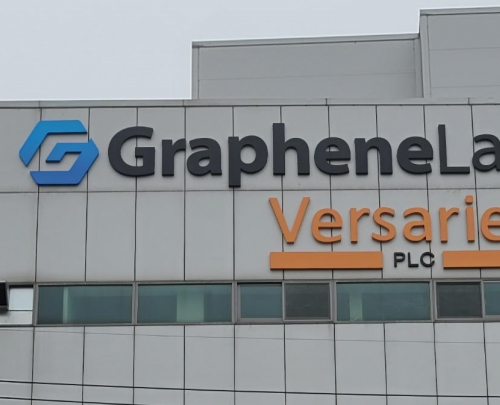
© Shutterstock
It was a bus ride in South Korea that has started a journey of discovery. When Ali Rohafza, director of graphene-based sensing technologies company Altered Carbon, joined an Innovate UK-funded, EEN South West-organised Global Business Innovation Programme (GBIP) visit to South Korea in March, he found himself seated on the bus next to Sundeep Bhandari, Strategy Manager (Digital Sector) for the National Physical Laboratory (NPL).
As a direct result of their conversation, Altered Carbon is returning to South Korea in November with the aim of securing a place on a collaborative project with the country’s world-ranked science and technology institute - the National Nanofabrication Centre of the Korea Advanced Institute of Science and Technology (KAIST).
The company’s follow-up trip is also courtesy of GBIP, the programme which is designed to help UK SMEs exploit growing opportunities within the high-growth and innovative industries. The focus for the November visit is advanced materials.
Potential Eurostars project
KAIST’s director has since come to the UK for discussions with Altered Carbon, a spin-out from Bristol Robotics Laboratory, and the Middlesex-based National Physical Laboratory regarding a proposed Eurostars/Eureka project which would involve UK and South Korean partners.
Exploring collaborations
Altered Carbon and NPL are now exploring collaborations in up to five areas, including the project with KAIST. “There are a number of ways in which NPL can help us as the UK's National Measurement Institute,” says Rohafza. “We have developed one of the very few commercially available graphene sensors on the market so we can be useful to them in establishing the highest measurement standards.”
Another venture being actively explored relates to a ‘cross-feed’ project, with NPL supplying the measurement and test expertise. It will help Altered Carbon accelerate their technology while allowing NPL to further develop UK capability around graphene as an emerging technology needing highly accurate and consistent standards.
The bus ride conversation
“The opportunity with KAIST probably wouldn’t have come up if I hadn’t sat beside Sundeep on the bus when we arrived in South Korea in March,” he says.
“Altered Carbon were new to us but the partnership we made sitting on that bus has proved really significant,” says Sundeep Bhandari. “They are bit special in being a developer as well as a systems integrator.” He had been on the South Korea trip to investigate possible collaborations or partnerships for NPL, whether commercial or to fulfil its remit to support ambitious, high-growth businesses.
“We can help them accelerate their revenue growth – that’s a massive win. They can then go out and gain more investment and higher profile for their business.”
For NPL, the March trip was extremely valuable, he says. “Spending time with all those UK organisations to learn more about them, share more about what NPL is and what we can do in terms of support in the UK, was worth its weight in gold.”
“We are really excited about the prospects of returning to South Korea in November as we believe there is a real market opportunity for our technology,” adds Ali Rohafza. “In addition to developing our relationship with KAIST the itinerary will enable us to meet many more research organisations and companies and explore other collaboration partnerships.”






